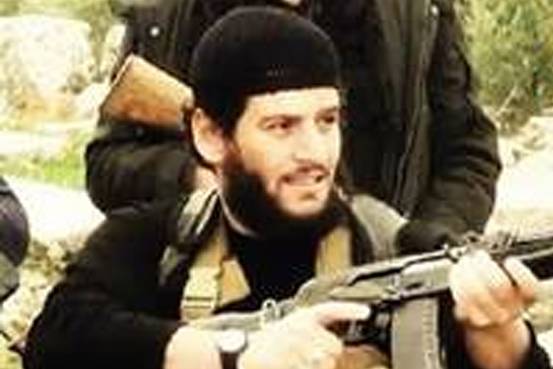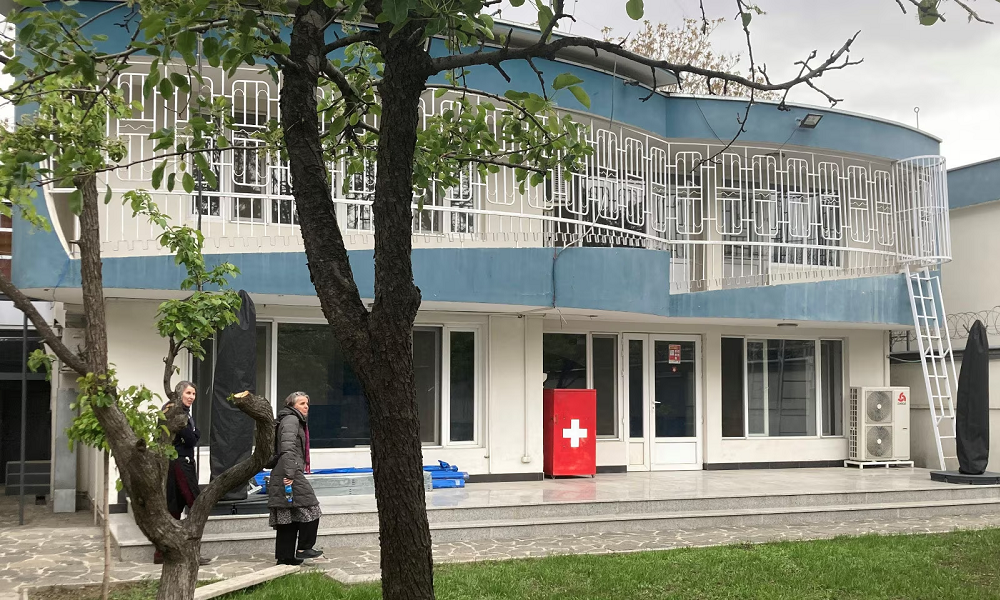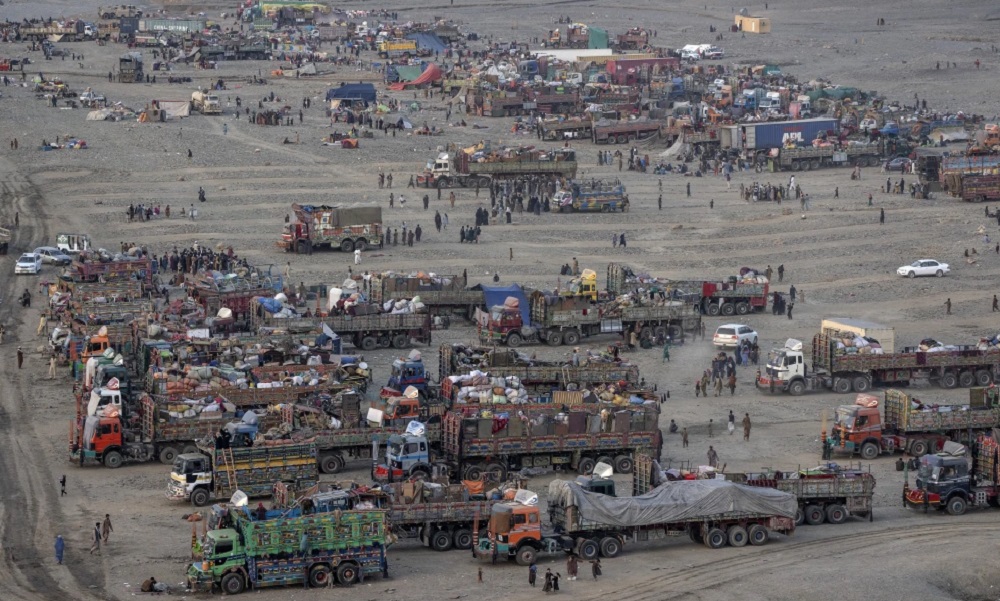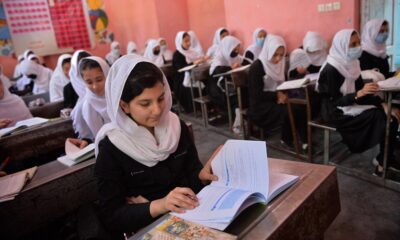Latest News
Senior IS Strategist, Spokesman Killed in Syria

 A founding member and chief spokesman for Islamic State, Abu Mohammed al Adnani, was killed on a battlefield in northern Syria, the militant group said.
A founding member and chief spokesman for Islamic State, Abu Mohammed al Adnani, was killed on a battlefield in northern Syria, the militant group said.
Adnani played an important role in Islamic State’s external operations, grooming Abdelhamid Abaaoud during his time fighting with the group in Syria before Abaaoud went on to become the ringleader of the terror attack in Paris that killed more than 100 people.
The Pentagon said Adnani was targeted in a “precision strike” in Aleppo province’s al Bab but couldn’t confirm whether he was killed.
“We are still assessing the results of the strike, but al Adnani’s removal from the battlefield would mark another significant blow to ISIL,” said Pentagon press secretary Peter Cook, using another name for the extremist group.
Adnani was considered by American defense officials as one of Islamic State’s most senior leaders, directly involved in both the recruitment of foreign fighters as well as the “chief of external operations,” according to a senior defense official. The Pentagon said he was connected to attacks that killed more than 1,800 people and wounded nearly 4,000.
Adnani was known for lengthy speeches promoting Islamic State,conveying messages from leader Abu Bakr al-Baghdadi. He would issue messages online lambasting jihadist rival al Qaeda and its leadership while imploring Islamic State supporters to take up arms and launch attacks in their home countries, from Australia to France.
Tuesday’s statements, posted to both the terror group’s official Amaq News Agency and its Aleppo Province media arm, didn’t say when Adnani had died. They didn’t detail how he was killed or which side in Syria’s multifaceted conflict was responsible for his death.
“The blood of the sheiks will only make it more firm on the path of jihad and determination to take revenge and assault,” it said.
Syrian rebel factions and President Bashar al-Assad’s regime have fought a yearslong war of attrition for the northern city of Aleppo. U.S. coalition, Russian and Syrian airstrikes pound Aleppo province regularly, with Lebanon’s Hezbollah, Kurdish and Arab rebels fighting on the ground.
Islamic State’s statement Tuesday referred to Adnani for the first time as a descendant of the Prophet Muhammad. That bloodline would give him important standing among jihadists, as key Islamic texts addressing the apocalypse claim a descendant of the prophet will rule as caliph, or religious emperor.
The religious title is claimed by Abu Bakr al-Baghdadi, who in 2014 declared a caliphate stretching across Syria and Iraq.
The lineage claim may mean Adnani was being positioned as the successor to Mr. Baghdadi, William McCants, a director at the Brookings Institution, said on Twitter.
The impact of Adnani’s death on Islamic State’s operations remains to be seen. Terror organizations from Hezbollah to Islamic State tend to be well-prepared to weather leadership changes, even in senior ranks. Al Qaeda continues to launch successful operations after the 2011 death of former leader Osama bin Laden.
Sen. Richard Burr (R., N.C.), chairman of the Senate Intelligence Committee, said Adnani’s removal could disrupt some of the group’s attack plotting.
“It’s at this early stage difficult to know quite what the implications of his death will be, beyond symbolism,” said Charlie Winter, a terror analyst who studies the group. “Islamic State’s leadership prides itself on its organizational opacity, so it is crucial that we don’t overstate the immediate tactical consequences of his death.”
Adnani was born as Taha Sobhi Falaha in Syria sometime in the late 1970s. He was put on the U.S. State Department’s terrorist designation list in August 2014.
“Adnani was one of the first foreign fighters to oppose [U.S.-led] coalition forces in Iraq before becoming ISIL’s spokesman,” the U.S. State Department said when blacklisting him, using an acronym for Islamic State.
His involvement with Islamic State dates back over a decade, when the U.S. invaded Iraq in 2003 and regional jihadists flocked to the country to take up arms against American soldiers with the group’s predecessor, al Qaeda in Iraq.
Adnani helped al Qaeda in Iraq rise to prominence as al Qaeda’s most brutal faction during the peak of the country’s civil war from 2004 to 2007. He emerged as Islamic State’s spokesman after the group’s very public divorce from al Qaeda in 2013.
Islamic State quickly became known for amplifying al Qaeda’s brutality, subjecting Muslims and religious minorities under its rule to beheadings, crucifixions and more for defying its rule.
In a widely distributed speech in 2014, Adnani urged followers to kill Westerners and non-believers any way possible. “Smash his head with a rock, or slaughter him with a knife, or run him over with your car, or throw him down from a high place, or choke him, or poison him,” he said, according to SITE, a group that monitors militant web sites.
Wall Street Journal

Latest News
Switzerland re-establishes presence in Kabul with humanitarian office

Switzerland’s foreign ministry announced on Monday it re-established its presence in Kabul by opening a humanitarian office to assist Afghanistan’s most vulnerable populations.
The ministry said in a statement that with 24 million people in Afghanistan relying on humanitarian aid and most of the population living below the poverty line, the office aims to provide critical support.
Four specialists from the Swiss Humanitarian Aid Unit (SHA), along with ten local employees, are now working on the ground. Their efforts are focused on ensuring that vulnerable communities receive the necessary resources to meet their basic needs, helping to alleviate the ongoing humanitarian crisis in the country, the statement read.
Since the IEA’s takeover in August 2021, Switzerland closed its cooperation office in Kabul and evacuated all its staff.
Latest News
Pakistan plans to expel 3 million Afghan refugees this year

Pakistan plans to expel 3 million Afghans from the country this year, as a deadline for them to voluntarily leave the capital and surrounding areas expired on Monday, The Associated Press reported.
It’s the latest phase of a nationwide crackdown launched in October 2023 to expel foreigners living in Pakistan illegally, mostly Afghans. The campaign has drawn fire from rights groups, the Islamic Emirate, and the U.N.
Arrests and deportations were due to begin April 1 but were pushed back to April 10 because of the Eid al-Fitr holidays marking the end of Ramadan.
About 845,000 Afghans have left Pakistan over the past 18 months, figures from the International Organization for Migration show.
Pakistan says 3 million Afghans remain. Of these, 1,344,584 hold Proof of Registration cards, while 807,402 have Afghan Citizen Cards. There are a further 1 million Afghans who are in the country illegally because they have no paperwork.
Pakistan said it will make sure that Afghans do not return once deported.
Authorities wanted Afghan Citizen cardholders to leave the capital Islamabad and Rawalpindi city by March 31 and return to Afghanistan voluntarily or be deported.
Latest News
Some countries preventing Afghanistan from gaining its seat at the UN

The Islamic Emirate’s spokesperson Zabihullah Mujahid says some Western countries, including the US, are preventing Afghanistan from gaining its seat at the United Nations.
Mujahid added that the US and its allies hold significant influence over the policies of the UN, and due to their defeat in the Afghanistan war, they are attempting to continue wartime policies.
“Some countries that fought against the Afghans for twenty years still have not changed their wartime policies and continue along the same path, which naturally has its effects,” said Mujahid.
He emphasized that the Afghan people have the right to secure this seat, and the IEA will continue to work to obtain it.
He also rejected the notion of Afghanistan being isolated, stating that despite Western pressures, the acting government has expanded its diplomatic relations with regional and global countries.
He stated: “Afghanistan is not isolated; every country naturally faces some challenges with others, but we have extensive regional and international engagements.”
However, experts believe that the UN will not grant Afghanistan’s seat to the IEA until they take concrete steps to meet the international community’s preconditions, such as establishing an inclusive government, ensuring human rights—especially women’s and minority rights—and effectively combating terrorism and narcotics, to satisfy the world.
Despite over three and a half years since the IEA’s takeover, no country has officially recognized the regime.
Meanwhile, many countries have engaged with the IEA and established good diplomatic relations with the caretaker government, which the IEA believes serves as a form of recognition of Afghanistan’s current government.
-

 Latest News5 days ago
Latest News5 days agoAfghanistan has the right to access Amu River’s water: Uzbek minister
-

 Latest News4 days ago
Latest News4 days agoAmnesty international urges Pakistan to halt Afghan deportations
-

 Latest News5 days ago
Latest News5 days agoUN ‘deeply disappointed’ over ongoing ban on girls’ secondary education
-

 Latest News4 days ago
Latest News4 days agoAfghanistan-Iran-Europe railway corridor activated
-

 Business4 days ago
Business4 days agoAfghanistan ships first consignment to Europe via Khaf-Herat railway
-

 Business3 days ago
Business3 days ago36 mining contracts inked over the past year: Mines ministry
-

 Sport4 days ago
Sport4 days agoDe Kock fireworks see Kolkata thrash Rajasthan in IPL
-

 Latest News3 days ago
Latest News3 days agoDried fruit market in Herat booms ahead of Eid-al-Fitr
















